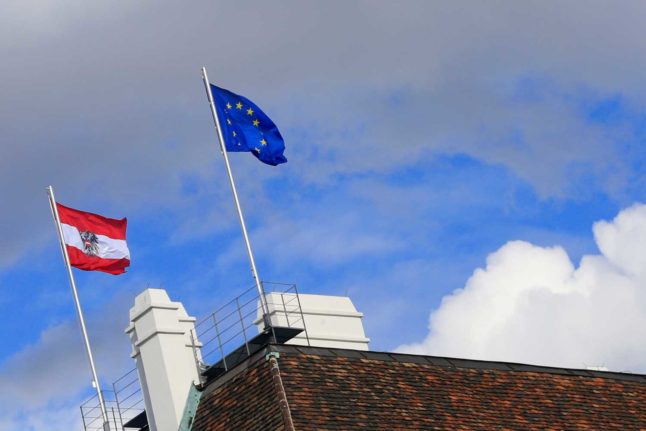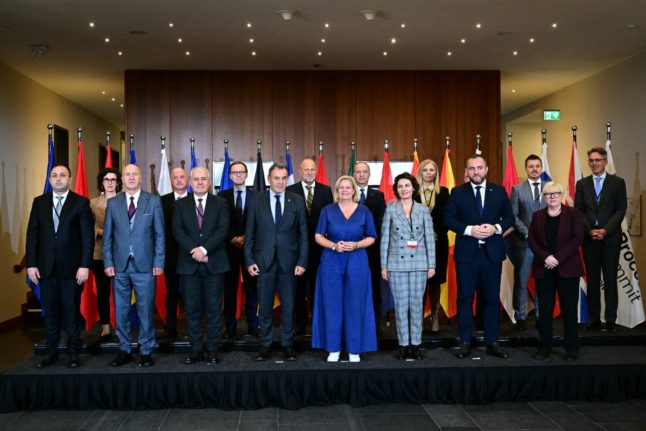Brexit has been finalised – but what does this mean for Britons living in Austria? Hayley Maguire explains how Britons can stay in Austria permanently.
What is the new residency permit?
The new post-Brexit residency permit for Britons who were resident in Austria before the end of the transition period on December 31st is known as the Article 50 EUV Card.
The Article 50 EUV Card will be valid for five years, or for ten years depending on how long the applicant has lived in the country for, but they guarantee the right to permanent residency, just as being an EU citizen did.
Any British nationals moving to Austria in 2021 and beyond cannot qualify for the Article 50 EUV card and must apply for a visa as a third country national.
Applications are open
The application process opened on January 4th but there is plenty of time to apply with the deadline for submitting an application is the end of December 2021.
Many residents have already started the process with the first appointments taking place across the country this week.
As this is the early days of a new system being rolled out nationally, some teething problems can be expected. But so far, most people seem happy with the process.
READ MORE: What Brits in Austria must do to prepare for the realities of Brexit
Are there any problems?
Mike Bailey, from British in Austria, said: “The general response from our feedback form is that it’s quite a straightforward process and no one has been turned away.”
However, there are delays being reported in some western provinces, such as Vorarlberg and Tyrol, and there are reports of differing amounts being charged for the processing fee.
The British in Austria Network is working with the British Embassy to clarify the issue.
There have also been reports on Twitter that some people are being denied the 10-year Article 50 EUV Card which in effect grants permanent residency.
A Tweet from podcasters @TAutsiders said: “We’re hearing that some Brits are being refused a 10 year EUV 50 Brexit Card despite having the required permanent residency rights.”
We’re hearing that some Brits are being refused a 10 year EUV 50 Brexit Card despite having the required permanent residency rights.
Let us and @britishinat know if you’ve been refused the 10 year card despite having your ducks in order. #BrexitinAustria
— The Autsiders (@TAutsiders) January 5, 2021
The Local is looking into whether this is the case – so please email us if you have had any difficulties in receiving the 10-year card.
For those that haven’t started the application yet, don’t be alarmed. The process can be broken down into three steps: filling out an application form, gathering the necessary documents and booking an appointment with the Austrian authorities.
Article 50 EUV Card application form
Proof of German language skills is not a requirement for the residency card but the application form is in German, so people without strong German language skills might need some help to fill out the form.
The information to be submitted includes personal data like name, address, date of birth and social insurance number (Sozialversicherungsnummer). The form also asks for the name of the applicants mother and father.
Next, the applicant has to state why they are staying in Austria, such as for work, study or as a self-employed person. As well as provide details about children, a spouse or registered partner in Austria, or any criminal convictions.
Booking an appointment
To submit the application for the Article 50 EUV Card, British residents have to book an appointment with the relevant authorities where they live.
For people in Vienna, this means at the Magistratsabteilung 35 (MA 35) that deals with immigration and citizenship. The first appointments took place on 4 January, in line with social distancing guidelines.
For other provinces, the appointment has to be made at either the Bezirkshauptmannschaft (district authority) or Gemeinde (municipality). For example, in Styria it will be either Leibnitz or Graz.
There are exceptions though, with some provinces not taking bookings for appointments until after the current lockdown has ended. Currently that date is January 24th but things may change depending on the Covid-19 situation.
According to britishinaustria.net, Salzburg and Innsbruck are not yet facilitating appointments, and there are similar reports coming out of Vorarlberg.
What does the appointment involve?
Mike Bailey from British in Austria says the appointments are mainly to process the documents, take fingerprints and hand over a bill for the process rather than to grill applicants about their lives in Austria.
The group’s advice for those in Vienna were mainly wrap up warm, prepare to wait between 20 and 50 minutes, check that your Medezettel is returned to you and check the fee – “it should be no more than €15 for Bescheinigung des Daueraufenthalts ( permanent residency) – if they charge €75 ask them to check”.
Documents needed to apply
To apply for the permit applicants will need their valid British passport or identity card and documents to show how they will continue living in Austria. This will depend on what has been stated on the form, as detailed below.
So employed applicants will need a work contract from an employer and self-employed people will need a work contract or an income-tax assessment from last year.
Students will need to show confirmation of enrolment at an Austrian educational establishment.
An economically inactive person will need proof of health insurance and financial resources, like a pension.
A husband, wife or registered partner (Familienangehöriger) will need to show the Anmeldebescheinigung (registration certificate) or a wedding certificate.
All applicants will have their fingerprints taken and need to provide a passport photo that is no more than six months old. Finally, the application form has to be signed in front of an employee of the Austrian authority during the appointment.
Don’t panic
For some British residents in Austria, the prospect of new bureaucracy is daunting and the British in Austria Network is providing guidance and advice. Mike Bailey says anyone struggling with the process should reach out for help.
He said: “Visit the britistinaustria.net website and don’t panic. The initial indications from people submitting the application are good and it seems to be straightforward.
“But don’t bury your head in the sand. Try to seek help rather than hiding if you’re worried.”
The first applications are now being processed with the first Article 50 EUV Cards expected to be issued in the coming weeks.



 Please whitelist us to continue reading.
Please whitelist us to continue reading.
A minor clarification – we have posted information received from britishinaustria.net site users in Leibniz and Graz – about specific contacts, other Bezirke and Gemeinde in Styria will naturally also handle appointments through the Bezirkshauptmannschaften (BH).
A minor clarification – we have posted information received from britishinaustria.net site users in Leibniz and Graz – about specific contacts, other Bezirke and Gemeinde in Styria will naturally also handle appointments through the Bezirkshauptmannschaften (BH).